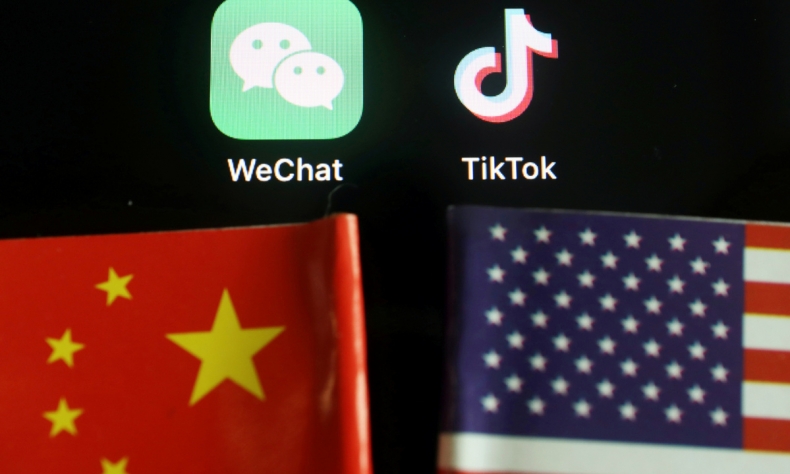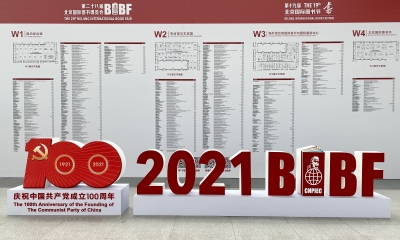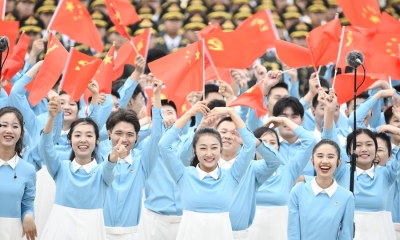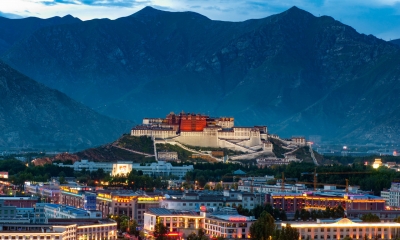Trump Threatens American Values with TikTok and WeChat Ban

Legal experts say that banning TikTok and WeChat would be “unconstitutional” as it would threaten Americans First Amendment rights.
In the United States, no value is placed higher than that of individual freedom.
Republican Congressman Tom Cole succinctly captured this truism in his essay; “Freedom is the American Dream.”
“Ever since our brave forbearers declared America’s independence,” Cole wrote. “The United States has been a beacon of liberty, hope and opportunity…This is because our forebearers trusted free people, free speech and free markets,” he added.
Following President Trump’s Executive Orders to ban TikTok and WeChat last week, US legal experts raised serious concerns over the Constitutional legality of the move, while American business leaders feared for the wider market implications.
A dangerous precedent
Under the orders, TikTok and WeChat are to be banned from operating in the US from September 15, unless, they are sold to a “very American company.” The forced sale of a foreign owned business by the US government naturally sent shockwaves around the international business community.
Facebook founder and CEO Mark Zuckerberg reportedly told Facebook employees he is “really worried” about the long-term implications of a potential US-wide ban on TikTok.
“I just think it’s a really bad long-term precedent, and that it needs to be handled with the utmost care and gravity whatever the solution is,” Zuckerberg reportedly said. “I am really worried … it could very well have long-term consequences in other countries around the world.”
There are notable rumblings too over the Trump administration negotiating — in public — the sale between ByteDance and the President’s preferred American buyer: Microsoft.
Microsoft emerged as the frontrunner to acquire TikTok following a phone call between Trump and CEO Satya Nadella. During the call, it is understood that Trump gave his blessing to the potential Microsoft acquisition, but not before he had stated his terms.
In an entirely unprecedented move — even by Trump standards — the US President demanded a cut of the sale. Trump said the US government should receive a “substantial portion” of the price of the multi-billion-dollar deal because “we’re making it possible.”
Reviewing his phone call with Microsoft to the media, Trump revealed: “I said a very substantial portion of that price is going to have to come into the Treasury of the United States because we’re making it possible for this deal to happen.”
Charlotte Jee, a reporter at MIT Technology Review, labelled the president’s behavior as “pretty astonishing” and “almost Mafia-like.”
“I hate to say this but it is kind of almost Mafia-like behavior — threatening a ban which pushes down the price then saying ‘oh we should get a cut of that deal afterwards to say thank you for what we’ve done there.’”
Beyond the dangerous precedent Trump’s move could establish with regards to government interference in the market, US businesses including Apple are duly concerned over the immediate impact the ban could have on business operations. The problem Apple faces is that WeChat is less a social media app than it is a digital ecosystem which is essential for every digitally connected person living in China.
China accounts for about 20 percent of Apple’s iPhone sales, and if Apple cannot continue to offer WeChat on the iPhone as a result of Trump’s ban, then its Chinese business will almost certainly crash overnight.
“The US business community is really concerned,” said Paul Triolo, an expert in global technology policy at Eurasia Group. “I mean, who would buy an Apple phone in China if you can’t use WeChat on it?”
Unconstitutional possible
While President Trump and his Secretary of State Mike Pompeo have repeatedly claimed (without providing evidence) that the Chinese-owned tech companies pose risks to national security, legal experts say a ban would be “unconstitutional.”
Kyle Langvardt, a law professor at the University of Nebraska Lincoln, confirmed that Trump’s orders are likely to have First Amendment problems. “The reason is that they discriminate based on the identity of the speaker and also, arguably, based on the ‘content’ of their speech,” Langvardt said.
Sarah Cook, a senior research analyst at Freedom House, also expressed concern over the threat to freedom of speech. She said: “A full ban would legally be hard for the US government to impose and is arguably unconstitutional.”
In a statement TikTok said it was “shocked” by Trump’s order, adding that, it sets “a dangerous precedent for the concept of free expression and open markets.”
The company said it had sought to engage with the US for over a year in order to find solutions to its concerns but the Trump Administration had “paid no attention to facts, [and] dictated terms of an agreement without going through standard legal processes.”
“We will pursue all remedies available to us in order to ensure that the rule of law is not discarded and that our company and our users are treated fairly — if not by the Administration, then by the US courts.”
According to reports from NPR, TikTok is expected to file the federal lawsuit in the US District Court for the Southern District of California this week.
Given the immediate damage a TikTok-WeChat ban would have on America businesses; the long-term precedent it could establish with regards to the market; and the threats to America’s First Amendment rights; it is bizarre move to say the least.
 Facebook
Facebook
 Twitter
Twitter
 Linkedin
Linkedin
 Google +
Google +







